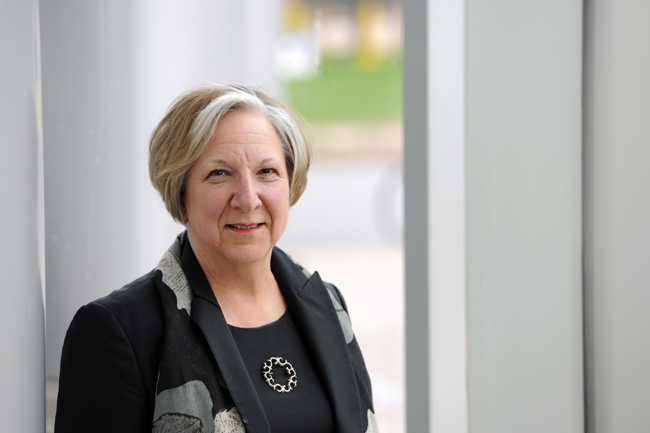
Prof. Martha Crago began her term as Vice-Principal, Research and Innovation, on July 1. Prof. Crago is certainly no stranger to McGill. She completed her bachelor’s, master’s and doctoral degrees at McGill, worked as a professor in the School of Communication Sciences and Disorders and was Dean of Graduate Studies, as well as the Associate Provost (Academic Programs). Prior to returning to McGill, Prof. Crago was Vice-President of International and Governmental Relations at the Université de Montreal and the Vice-President (Research) and Professor in Human Communication Disorders at Dalhousie University.
In 2016, the Minister of Science, Kirsty Duncan, invited her to join the federal panel reviewing the state of the funding of fundamental research in Canada. Described as the most comprehensive review of Canada’s research funding ecosystem in four decades, the report produced by the panel reinforces the underlying urgency felt among university leaders and administrators to improve the federal funding ecosystem. The Reporter sat down with Prof. Crago to talk about fundamental research in Canada, her vision for McGill, as well as what it feels like to “come home” to the University she loves.
What motivated you to return to your alma mater?
It is often said that one cannot return home. I left McGill to expand my scope of knowledge and experience but my strong loyalty to this university has never lagged. My colleagues at Dalhousie can attest to this. They often jokingly complained to me by saying, “Oh no, there you go again, talking about McGill.” I was motivated to return to McGill because I think I now have the proper skills and experience to make a positive difference for my alma mater, for Quebec and for Canada. I would like to continue to build McGill’s remarkable research strengths by setting goals and working with colleagues committed to excellence, excitement, originality, and innovation as well as transparency and integrity of process.
What did you learn from the experience of participating in Canada’s Fundamental Science Review and what did you contribute to the process?
Participating in Canada’s Fundamental Science Review was an honour. I believe that my wide-ranging experience gained as a Vice-President of Research was a significant contribution to the panel’s work. I know about the way each of the federal funding agencies work, as well as much about various international funding agencies and their programs. Of the many lines of inquiry possible, the panel focused on what must be in place for the complex funding ecosystem in Canada to achieve ideal results, and where are the current gaps in opportunity? We surveyed the changes over the 40 years since the previous report and outlined which issues persist and what new ones need attention. The panel also considered whether the degree of support received by fundamental researchers in Canada, as well as how the various funding bodies support researchers at the different stages of their careers, is adequate. As you can see in the report, we calibrated down to a penny how much money the nation needs over the next few years to invest in talent and in the full support of fundamental research, in order to remain competitive internationally.
Are you optimistic that the recommendations will be implemented?
We designed the recommendations to play out over time. As a whole, our recommendations make the case for why fundamental research is so important. The mission of the panel was to help the government shape well-informed policy, understanding that politicians operate in an entirely different environment than university administrators and researchers. It was our hope that by implementing some of the recommendations in the report, the government and academia can better collaborate in the interest of all Canadians.
What is your vision for research and innovation at McGill?
McGill is very strong in fundamental research and has been so since its inception. At the same time, McGill, like many universities across the nation, is working on an innovation agenda. In my mind, the imperatives to support fundamental research as well as innovation are not oppositional. Fundamental research leads to the discovery of new ideas. Innovation turns those good ideas into improvements in people’s economic wellbeing through the development of new processes, products and services. This leads to job creation. The importance of the role of a university in the economic agenda really hits home when you live in a province like Nova Scotia, where the economy and in consequence research funding is severely constrained. What I learned from my involvement in shaping an economic and innovation action plan for the province of Nova Scotia is that universities can play an important role in the social and economic environment in which they exist.
You’ve completed your first week on the job. How does it feel to be back at McGill?
Every time I walk across campus, I meet old friends, from facilities staff to senior administrators. The thought that has been running through my mind all week is, “Wow, this is where I belong!”
